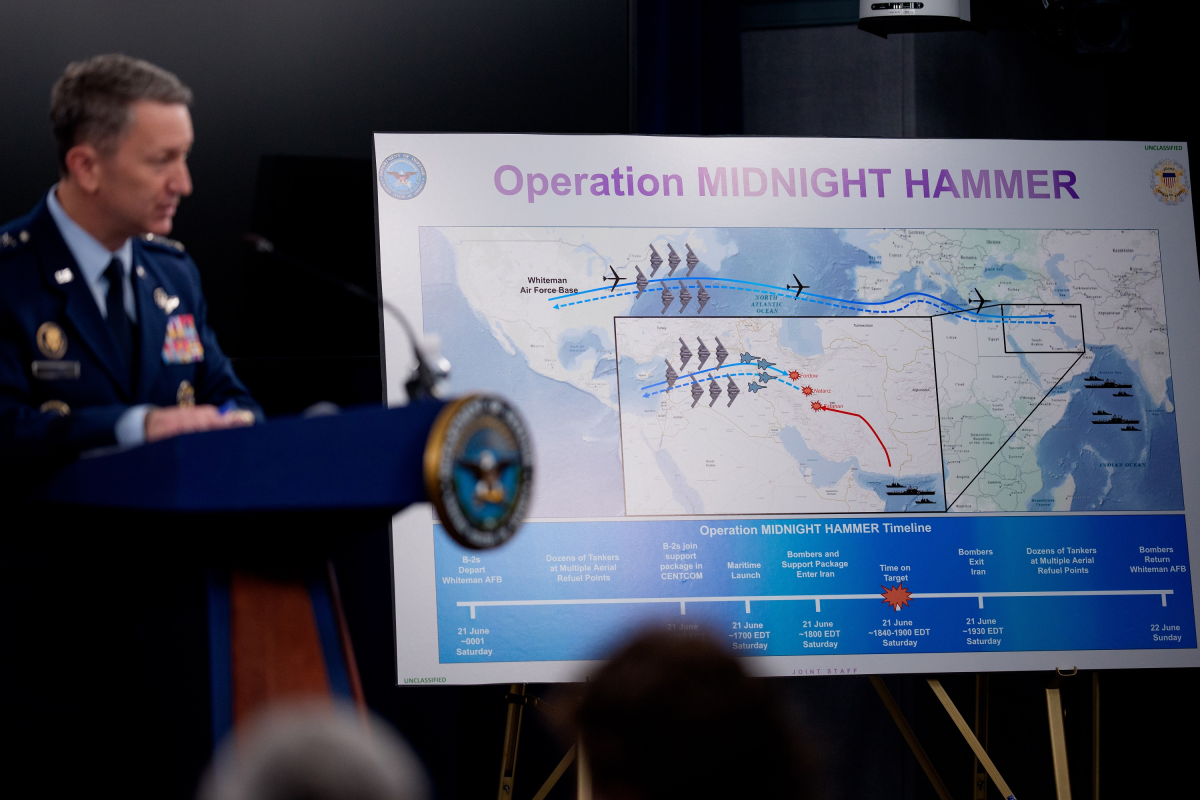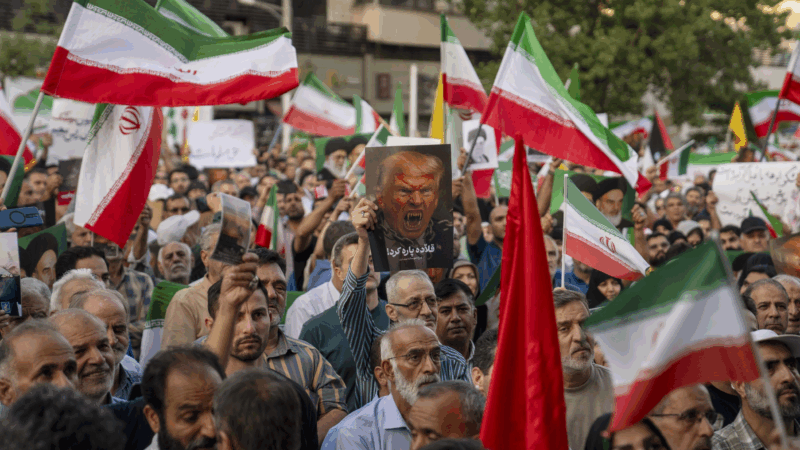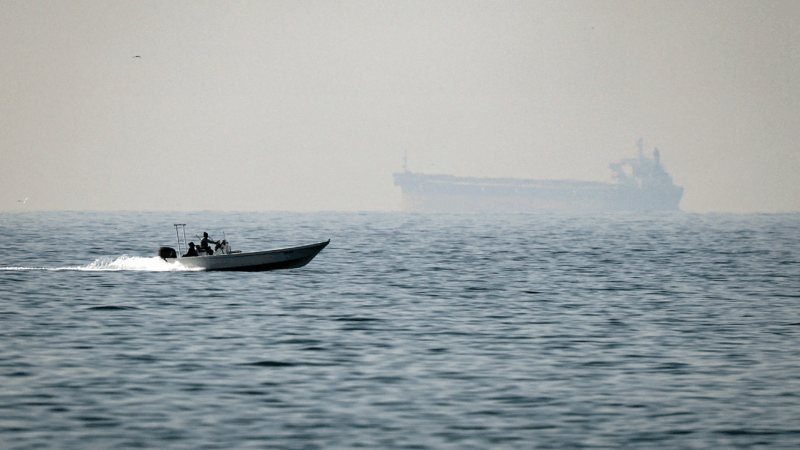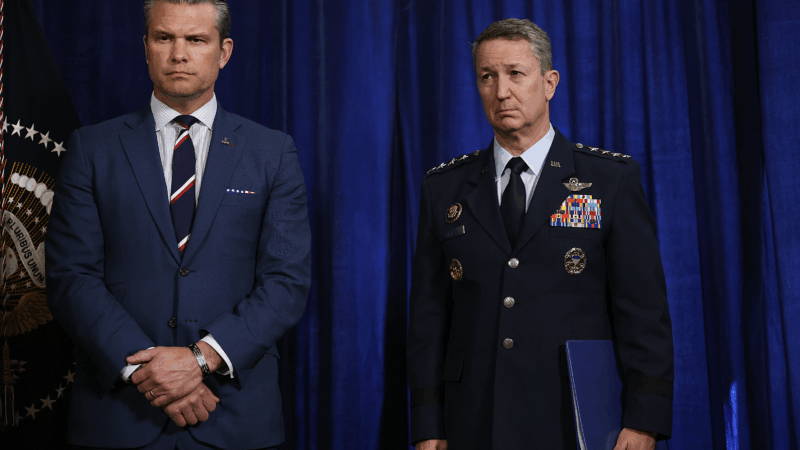4 takeaways on the U.S. airstrikes on Iran — and what might come next
Iran’s government is weighing how to respond after the U.S. military launched a series of coordinated bombing attacks Saturday against three Iranian nuclear facilities in a major escalation of the ongoing Middle East conflict.
The strikes were intended to prevent Iran from developing a nuclear weapon, according to U.S. officials. President Trump said in a Truth Social post Saturday evening that the American assault was “very successful.”
Earlier in June, Israel began bombing nuclear facilities and other sites across Iran. The two countries have been trading deadly attacks since then, and the U.S. military has helped intercept missiles and drones fired at Israel. But the U.S. did not get directly involved in the Israeli offensive until the surprise strikes on Saturday.
Iran’s foreign minister called the U.S. military operation an “outrageous, grave and unprecedented violation” of the United Nations Charter and international law.
Here’s what to know about the U.S. attack on Iran and what could come next.

1. The U.S. is now directly involved in another Middle East conflict
The mission, dubbed “Operation Midnight Hammer,” began at midnight on Friday when a group of B-2 stealth bombers took off from an Air Force base near Kansas City, Mo., according to Joint Chiefs of Staff chairman Gen. Dan Caine, who briefed reporters on Sunday.
Some bombers flew west as decoys, while the other planes that would ultimately strike Iranian nuclear sites flew east. Those B-2s dropped 14 bunker-buster bombs on multiple targets at the Fordo and Natanz sites between roughly 6:40 p.m. and 7:05 p.m. ET.
Loading…
Bunker-buster bombs describe a type of munition that can burrow deep into the ground before exploding and are designed for attacking fortified subterranean targets.

At around 5 p.m. ET Saturday, just as the bombers were entering Iranian airspace, a submarine launched more than two dozen Tomahawk missiles at the Isfahan nuclear site.
The mission involved more than 125 aircraft and resulted in 75 precision guided weapons being dropped on the three locations, officials said. And they emphasized that this attack was against Iran’s nuclear program, not against its military or people.
2. Iran warns the U.S. is responsible for the “dangerous consequences”
Iran’s Foreign Minister Abbas Araghchi denounced the strikes during a press conference in Istanbul on Sunday, calling them a violation of the law. “The war-mongering and lawless administration in Washington is solely and fully responsible for the dangerous consequences and far-reaching implications of its act of aggression,” he said.
Araghchi added that Iran “reserves all options to defend its security interests and people” but did not specify what the country’s response would be.
Several top Israeli politicians welcomed the strikes. Israeli Prime Minister Benjamin Netanyahu thanked Trump in a video message, while Knesset opposition leader Yair Lapid said Trump and the U.S. military “made the world a safer place.”
There was a tempered response from several European leaders, who continued to urge diplomacy between Iran, Israel and the U.S.
UK Prime Minister Keir Starmer said Iran “can never be allowed to develop a nuclear weapon” and urged the country to continue negotiating.
But U.N. Secretary-General António Guterres said he was “gravely alarmed” by the American use of force, calling the U.S. strikes a “dangerous escalation in a region already on the edge – and a direct threat to international peace and security.”
Russia’s Ministry of Foreign Affairs condemned the attack too, calling it “irresponsible” and a “gross violation of international law.”
3. Republicans largely backed Trump’s move, while many Democrats were skeptical
Back in the U.S., top Congressional Republicans expressed support for the military operation.
House Speaker Mike Johnson said Trump “made the right call, and did what he needed to do,” while Senate Majority Leader John Thune said Iran had “rejected all diplomatic pathways to peace.”

Yet many Democrats accused Trump of sidestepping the Constitution by directing the military to attack Iran without seeking Congressional approval first.
Rep. Jim Himes of Connecticut, the highest ranking Democrat on the House Intelligence Committee, called the strike a “a clear violation of the Constitution, which grants the power to declare war explicitly to Congress.”
Sen. Mark Kelly, D-Ariz., said on Meet The Press that Iran wasn’t posing an immediate threat to the U.S. before the strike. “I would say when there’s a clear and imminent threat to U.S. citizens, to the United States, to the homeland, the commander-in-chief has a right to act,” he said.
“That wasn’t the case here, and I think certainly for the 40,000 troops in at least six countries in the Middle East — we have a lot of bases in the Middle East — those troops are now at greater risk,” Kelly added.
While the reaction among politicians largely fell on party lines, it didn’t do so exclusively. Kentucky Republican Rep. Thomas Massie said Congress “has the sole authority to authorize war” and should have been called back from vacation before the attack.
4. Trump floats the idea of a regime change
The Trump administration is continuing to try to figure out exactly how effective its strike was in degrading Iran’s ability to build a nuclear weapon.
“Final battle damage will take some time,” Caine said, “but initial battle damage assessments indicate that all three sites sustained extremely severe damage and destruction.”
The International Atomic Energy Agency confirmed on Sunday that the three sites — Fordo, Isfahan and Natanz — were all hit in the attack. The extent of damage to the underground Fordo site was “not immediately possible to assess,” the agency said, adding that Natanz and Isfahan suffered additional damage in the U.S. bombings after previously being struck by Israeli forces.

Two independent experts analyzing commercial satellite imagery told NPR that the nation’s long-running nuclear enterprise is far from destroyed, adding that Iran likely still has stocks of highly enriched uranium.
The IAEA also said that Iranian authorities hadn’t reported a jump in off-site radiation following the bombings on Saturday, and that it didn’t expect there to be any health impacts on people outside the three sites.
Another open question is whether Iran will retaliate against the U.S. in response to the attack — and what form that retaliation would take.
Caine said U.S. forces remain on high alert and would respond to any “Iranian retaliation or proxy attacks.” The U.S. operates permanent military bases in several countries near Iran, including Kuwait, Bahrain, Qatar and the United Arab Emirates.
The State Department doubled the number of emergency evacuation flights for American citizens leaving Israel and is evacuating nonessential staff from the U.S. Embassy in Lebanon, the Associated Press reported.
In a Truth Social post Sunday afternoon, Trump floated the possibility of regime change in Iran. “It’s not politically correct to use the term, ‘Regime Change,’ but if the current Iranian Regime is unable to MAKE IRAN GREAT AGAIN, why wouldn’t there be a Regime change??? MIGA!!!”
Video of Clinton depositions in Epstein investigation released by House Republicans
Over hours of testimony, the Clintons both denied knowledge of Epstein's crimes prior to his pleading guilty in 2008 to state charges in Florida for soliciting prostitution from an underage girl.
Some Middle East flights resume, but thousands of travelers are still stranded by war
Limited flights out of the Middle East resumed on Monday. But hundreds of thousands of travelers are still stranded in the region after attacks on Iran by the U.S. and Israel.
‘Hamnet’ star Jessie Buckley looks for the ‘shadowy bits’ of her characters
Buckley has been nominated for a best actress Oscar for her portrayal of William Shakespeare's wife in Hamnet. The film "brought me into this next chapter of my life as a mother," Buckley says.
How, who, and why: NPR flips its famous letters to defend the right to be curious
NPR is standing up for the public's right to ask hard questions in a national campaign dubbed "For your right to be curious." At NPR's headquarters, on billboards in New York City, Chicago, and Washington, D.C., and across social media, NPR's three iconic letters transform into "how," "who," and "why" — a bold declaration of its commitment to fight for Americans' right to ask questions both big and small.
Oil prices surge, but no panic yet, as Iran war continues
Global oil prices are in the high $70s as traffic through Strait of Hormuz comes to a halt. Some analysts have warned they could top $100 a barrel if the stoppage is prolonged.
Hegseth: ‘We didn’t start this war but under President Trump we’re finishing it’
The remarks are the first to reporters since the U.S.-Israeli military operations against Iran began Saturday despite weeks of talks designed to stave off a conflict.








